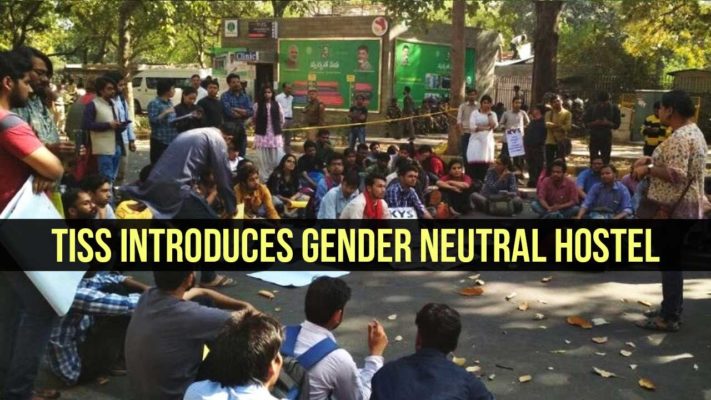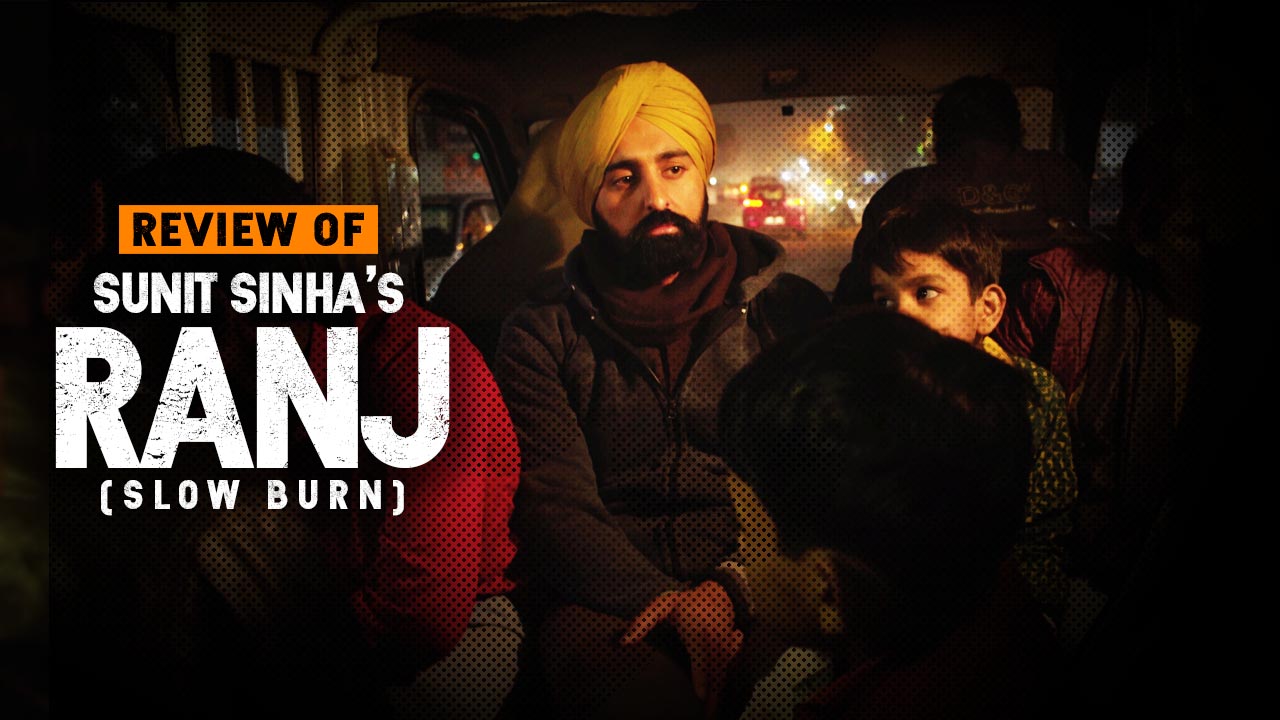
India’s First Gender-Neutral Hostel
In April of this year, Tata Institute of Social Sciences (TISS) in Mumbai became the first institution in India to provide a gender-neutral space, a hostel for its students. As a step towards gender inclusion, the institute marked the ground floor of its current women’s hostel as gender neutral, to be occupied by students who identify themselves as Transgender man or woman, gender, non-binary, pangender, non-conforming, gender fluid and other similar identities. This was in order to ensure a “safe and non-abusive space” for students of the transgender and genderqueer community and their allies. A committee set up to ensure its smooth functioning ensures that individuals are sensitive towards gender and identity issues through interviews. Another step towards gender inclusion taken by the management was the introduction of an option to choose between three titles instead of the conventional two in certificates. They can now opt for the gender-neutral title Mx. in addition to Mr./Ms.
The management along with the committee believes that such actions more than just respect individuals’ right to express themselves but also triggers conversations leading to acceptance and building a tolerant society. By expressing its stance on a controversial issue not just in a statement but actual change, T.I.S.S. has added to its reputation of being progressively left winged. Premier institutions having and adhering to strong political or social ideologies cause huge impacts in shaping societal thoughts, given the fact that they are looked up to as sources of scholarly knowledge which can boil down to hubs of student politics.
So, What Can Be The Effects Of This Drastic Measure Taken By T.I.S.S.?
This move to introduce the gender-neutral hostel has brought joy to the LGBTQ community in T.I.S.S. Mumbai and has been lauded by other LGBTQ communities, marking a step towards what will hopefully be an incredibly accepting society. It is important for each one of us as members of society to be welcoming and accepting of others (*conditions apply), to build societies that are homes and platforms of our public and professional expression. We create safer places, happier individuals and incredibly strong societies by doing so. Denying people space for expression because of identities and in some cases, anomalies that occur at birth is simply unbelievable inhumane.

Non-acceptance of trans communities in major societies, public and professional areas is not just nonsensical but has also caused huge suffrage, trauma and psychological damage to them. By denying them housing, education, healthcare and just basic acceptance we have driven them out of their homes into the sex trade and a life of begging; the very reason we distaste the Hijra community. Individuals who are not a part of this community and identify as transgender do not have it any better. The mere fact that we practice our existence by causing so much damage to others just because it challenges our notions of conventional living is maddeningly sickening. (And yes, that includes the LGBTQ community, men and women performing non-conventional roles, and also lifestyle changes.) And taking such steps, of having gender-neutral hostels, normalizes their existence and breaks the stereotypes that we are so scared of. With every individual, institution and nation that expresses its support, we create conversations and awareness, causing a change that we so need.
The Flip Side Of This
However, the currently established gender-neutral hostel in T.I.S.S. not only provides space for individuals identifying as Transgender but also students who do not conform to the binary system of gender allocation which includes a multiplicity of identities (as many as 50, as Facebook now generously recognizes). None of these identities can be biologically confirmed as a contrast to transgender individuals (whose hypothalamus and in some cases hormones too, are strikingly similar to those with whom they wish to be identified with).
This provides an obvious flaw in the system as the only discernible way to determine a person’s gender identity would be to ask him/her/them/or any of the 70+ other pronouns that now exist. Most of the non-conformists also believe that gender is a social construct, implying that every feminine thing that a woman does, has been wired to do so by the society; every time a girl picks up a doll instead of a plastic gun she is acting the way the society expects her to, in other words in the absence of society each of us would express ourselves completely different with a huge difference in our behaviours, attitudes, preferences in our clothes, colours that we like, career options even sexual and intimate partners. They claim that none of our traits are biological, meaning, in the absence of society women would be as strong as men, and men would mature emotionally, the way women do. And so masculinity or femininity is just a farce created by men and the patriarchal society to oppress women. (Repeat this sentence in your head until the self-contradiction is clear. Thank you.)
This seems to make sense when you think of how much of the way we live is determined by the society’s expectation of us being a man or a woman. But we do not call women with short hair, who dislike sarees or men who cannot or will not grow facial hair as gender fluid. There is an obvious difference between non-adherence to conventional ideas of man and woman and entirely throwing gender out of the window.
But individuals develop on this gender malleable idea and just decide to identify himself/herself with a gender identity, much like we could use adjectives to describe ourselves; which, as you guessed it, can be changed when the idea of your changes, or three minutes pass by. And so these identities can be changed, as gender is also perceived as malleable and fluid by them, and they expect people, society and the nation at large to adhere to their this identity.
What Is Gender Non-Conformism?
Gender non-conformism doesn’t have a discernible history but has emerged from the late 20th century, and has little to no scientific studies to support these claims except the “David Reimer case”. John Money, a psychologist in the 1960s raised David Reimer, a biological male, as a girl and his identical twin as a boy. Through this study, John Money proved that it was possible to raise a biological male as a female, however, this mere possibility did not mean that David ceased to be a boy. Afterall, if I decided to treat my sewing machine as a golden retriever, it is certainly possible to do so, but it does not mean it becomes a dog.
This study completely ignored the assessment of the psychological effects of this on David, who later publicly spoke of the trauma he went through and went on to live like a man and marrying a woman. Judith Butler’s “The Gender Trouble” became a leading voice of feminism through which she voiced her theory of behaviour affecting gender, and thereby empowering women to change how their gender was perceived by creating a stronger presence of themselves. Later gender identity theories have been developed citing Butler and Money.
Why Is This Happening?
Camille Paglia, an American academic critic associates this emergence of gender identities to a cultural collapse, like many that we have seen before. The Existentialism literary movement of the early 20th century, for instance, claimed that humans and life do not have a meaning or it is ‘nothing’, and the meaning is what we make of it. We see that with the idea of gender today, it is taken out of its conventional sense, because we give it meaning, gender is what we make of it.
As We Progress Towards Change, We Must Establish A Middle Ground
Self-expression is undeniably important, and we as sane individuals must always accept the individual expression. If a man, decides to dress up in a pretty little frock, he must be able to, without being sexually or physically harassed and mocked at, have his rights, job or home taken away. That is acceptance of self-expression, not dynamically restructuring society and ignoring its psychological, administrative and safety concerns to accommodate a mere theory. Because too much of something is not good, we must practice liberalism, believe and advocate for freedom, accept changes and accommodate them. But the frenzy of freedom must not carry us away to normalize deviation to the point to which we encourage it, to not become all permissible to the point to which we nurture danger because some people believe in it. And while we applaud T.I.S.S.’s actions and recognize its power to induce change, we must prepare for and fight for a change that functions within rationale. We must practise love and acceptance to build a community which becomes our home of expression, a home that dwells within the limits of sanity.














